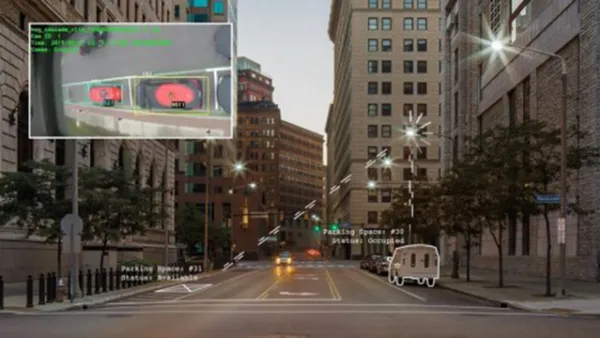As new technology for data collection becomes available to police departments around the country, concerns grow about what is being collected and who has access.

For the last two years the San Diego Police Department has been collecting DNA and facial recognition information. According to reporting from the New York Times, this collection requires no paperwork or demonstration of cause. The SDPD also uses automated license plate readers that track cars as they move through the greater San Diego area. Initially the department claimed this data was only available to SDPD. "They later acknowledged that in fact, SDPD does have a say over who shares data with and had, perhaps unwittingly, shared the data with at least 800 other law enforcement departments across the country, including federal law enforcement," Seth Hill Reports for the Voice of San Diego.
The acquisition and use of new technologies can present a host of dangers, even municipalities with the best of intentions may be vulnerable to hacks and the exposure of public data. "Sudden arrivals of unsecured surveillance systems in the hands of untrained police cannot be the way of the future," Hill argues.
The rapid development of facial recognition software makes this danger all the more acute. Because facial recognition software already available from services like Amazon, Hill argues, the federal government needs to create standards for how this technology can be deployed.
FULL STORY: Communities Deserve to Know Which Surveillance Devices Are Aimed at Them

Analysis: Cybertruck Fatality Rate Far Exceeds That of Ford Pinto
The Tesla Cybertruck was recalled seven times last year.

National Parks Layoffs Will Cause Communities to Lose Billions
Thousands of essential park workers were laid off this week, just before the busy spring break season.

Retro-silient?: America’s First “Eco-burb,” The Woodlands Turns 50
A master-planned community north of Houston offers lessons on green infrastructure and resilient design, but falls short of its founder’s lofty affordability and walkability goals.

Test News Post 1
This is a summary

Analysis: Cybertruck Fatality Rate Far Exceeds That of Ford Pinto
The Tesla Cybertruck was recalled seven times last year.

Test News Headline 46
Test for the image on the front page.
Urban Design for Planners 1: Software Tools
This six-course series explores essential urban design concepts using open source software and equips planners with the tools they need to participate fully in the urban design process.
Planning for Universal Design
Learn the tools for implementing Universal Design in planning regulations.
EMC Planning Group, Inc.
Planetizen
Planetizen
Mpact (formerly Rail~Volution)
Great Falls Development Authority, Inc.
HUDs Office of Policy Development and Research
NYU Wagner Graduate School of Public Service




























